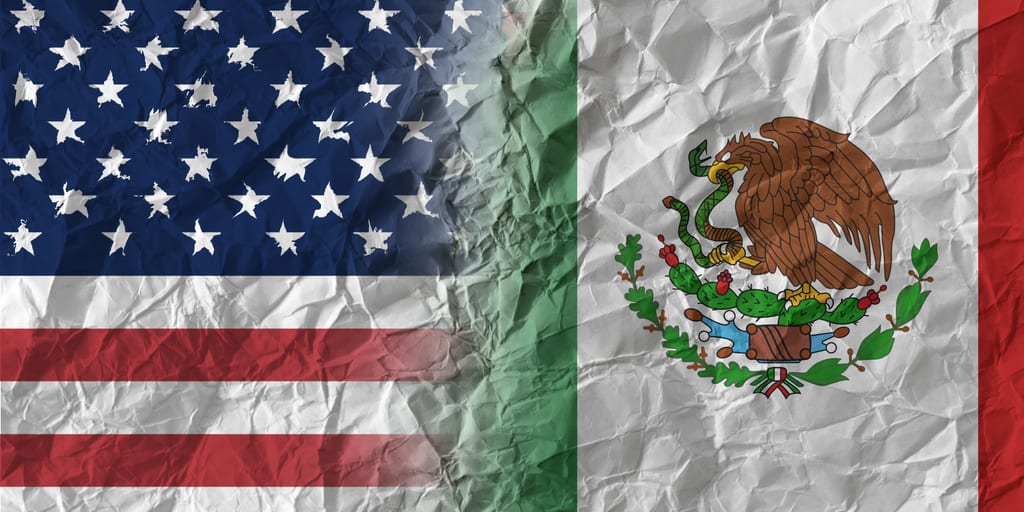
In an effort to push Mexico to take steps to stem the surging tide in immigration across the U.S.-Mexico border, President Trump recently announced that the United States will impose tariffs on all goods imported from Mexico starting this coming Monday, June 10. Tariffs starting at 5 percent are scheduled to increase by 5 percent per month until they reach 25 percent on October 1.
“Tariffs will permanently remain at the 25 percent level unless and until Mexico substantially stops the illegal inflow of aliens coming through its territory,” President Trump said in a statement accompanying the announcement. “If the illegal migration crisis is alleviated through effective actions taken by Mexico, to be determined in our sole discretion and judgment, the tariffs will be removed,” the president added.
The tariff announcement raises implementation questions because the Office of the U.S. Trade Representative (USTR) and the U.S. Customs and Border Protection have not issued an official notice detailing which products will be subject to additional tariffs or how the agencies will administer the tariffs.
Steve Register of Flores Ixtapan outside of Mexico City said the new development, while surprising, “does not change our strategic plans for exporting to the U.S.”
“Mexico, just like most of corporate America, is not interested in a tariff war and the negative impact it can have on the economy,” added Register, a member of SAF’s Growers Council. He pointed out that several weeks, the president’s threat to shut down the southern border caused minor delays, but ultimately created no long-term effects. “If there are some short-term headaches due to the political maneuvering, so be it. Everyone will do what they need to do to keep servicing the customers.”
Register and Shawn McBurney, the Society of American Florists’ senior director of government relations, both noted that senior Mexican officials met with their U.S. counterparts throughout this week to seek a resolution to avoid tariffs — meetings that appear not to have satisfied the administration. Referring to these discussions on Twitter, President Trump commented, “Progress is being made, but not nearly enough!”
The tariff announcement comes at a critical time when the administration is pulling out all the stops to pressure passage of the U.S.-Mexico-Canada Agreement (USMCA) before Congress breaks for August recess. In fact, the tariff announcement came just hours after USTR issued a draft Statement of Administrative Action with regard to USMCA, an important procedural step towards ratification. Mexican and Canadian officials are also taking steps to move approval of the new NAFTA through their respective legislatures.
U.S. businesses and lawmakers from myriad industries are considering a range of potential responses to this latest development in the U.S.-Mexican trading relationship. Affected parties may take legal action to halt the tariffs. The litigation would focus on the president’s choice to utilize the authorities of the International Emergency Economic Powers Act of 1977, which has been used in the past to impose sanctions and regulate exports.
Senate Finance Committee Chairman Chuck Grassley (R-Iowa) called the action “a misuse of presidential tariff authority and counter to congressional intent.” House Ways and Means Chairman Richard Neal (D-Massachusetts) called it an “abuse of power.” On Capitol Hill, lawmakers are divided on whether the president is acting within his constitutional and statutory authority.
“There are current discussions whether to introduce a resolution of disapproval with regard to the tariff announcement, which would have the effect of stopping the president’s action, if approved,” McBurney said. “More important, it is unclear if there would be enough votes to override a veto of a resolution of disapproval.”
Meanwhile, it is also possible that Mexico may impose retaliatory tariffs on U.S. exports.
Look for more coverage of this issue in future SAF publications.



